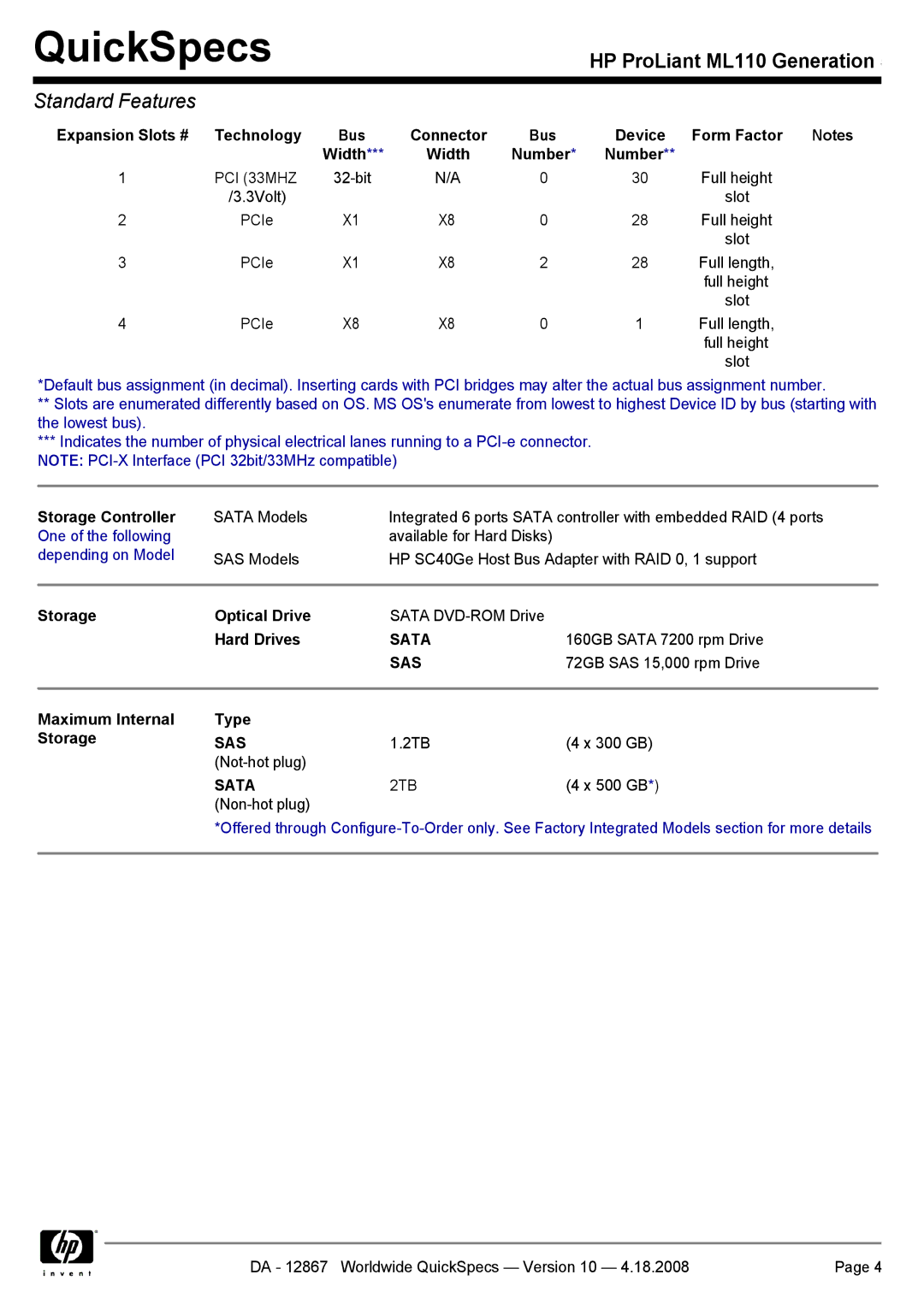ML110 specifications
The HP ML110 is a versatile and reliable tower server designed for small to medium-sized businesses that require a powerful computing solution. It offers robust performance, expandability, and a range of features that make it an ideal choice for various workloads, including file storage, web hosting, and application serving.One of the main features of the HP ML110 is its support for Intel's Xeon processors, which provide exceptional performance and efficiency. Depending on the configuration, users can select from multiple Intel Xeon E3 and E5 generation processors, allowing for the customization of processing power based on specific application needs. The server supports multiple cores and threads, ensuring that businesses can handle simultaneous tasks with ease.
In terms of memory, the HP ML110 offers up to 64 GB of DDR4 RAM, allowing for substantial multitasking and enhanced responsiveness. It features multiple DIMM slots, which enable easy upgrades as the business grows. This scalability is further enhanced by the server's expansive storage options, accommodating both traditional hard drives and high-speed solid-state drives (SSDs). The server typically supports various RAID configurations, providing redundancy and data protection for critical business information.
The HP ML110 is equipped with a range of connectivity options, including multiple USB ports, Ethernet ports, and PCIe slots. This allows for the installation of additional network cards, graphics cards, or other expansion cards to meet evolving business demands. Moreover, it comes with integrated management tools such as HP iLO (Integrated Lights-Out), allowing for remote access and monitoring of the server, facilitating easier management of systems from afar.
Power efficiency is another key characteristic of the HP ML110. The server is designed to minimize energy consumption while delivering optimal performance, contributing to lower operational costs. Additionally, it supports efficient power supplies and cooling systems, ensuring stable operation in various environments.
In summary, the HP ML110 tower server combines powerful processing capabilities, vast memory and storage options, and a suite of management tools, making it a suitable choice for businesses seeking a reliable and scalable server solution. Its flexibility and performance-focused design enable organizations to adapt to changing workloads, making it a valuable asset in the modern IT landscape.

